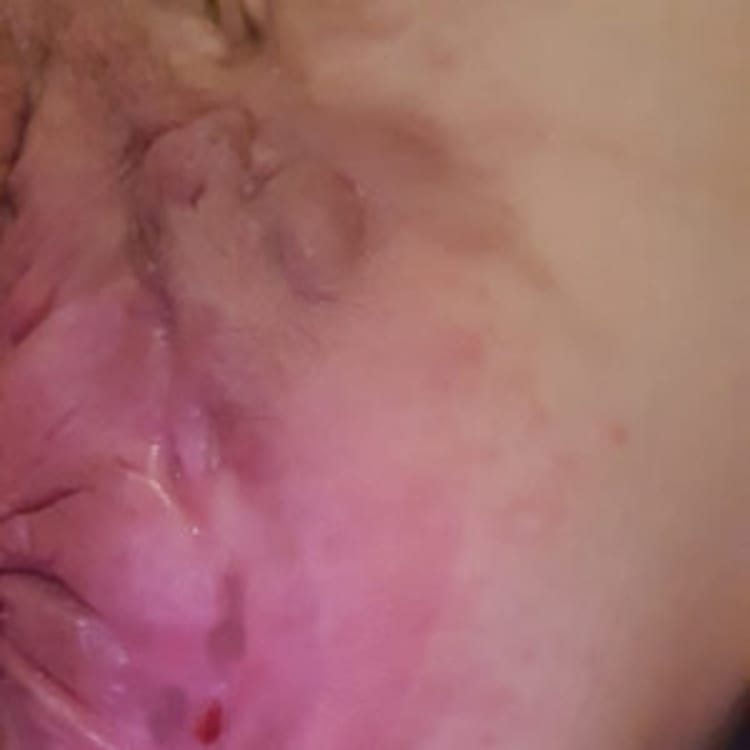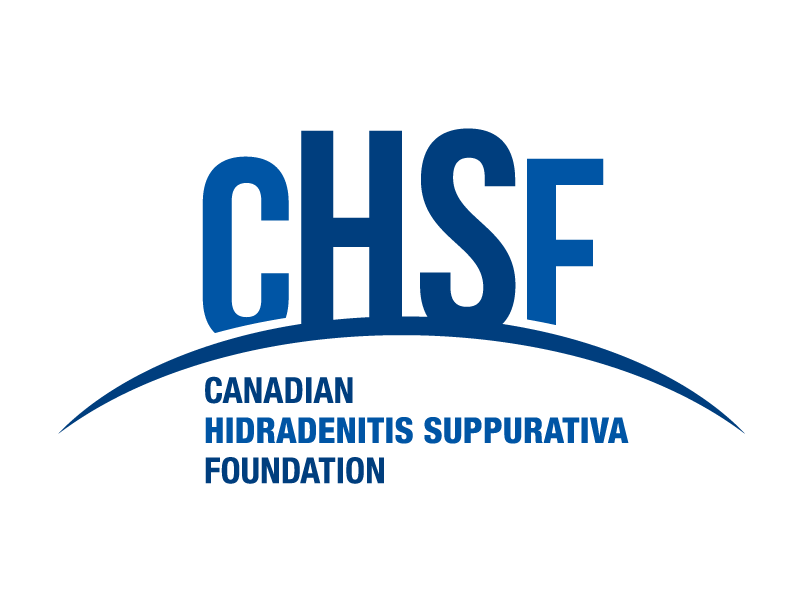Let’s recap; Hidradenitis Suppurativa (HS) is a chronic, inflammatory skin condition characterized by painful nodules, abscesses, and tunnels (sinus tracts) that develop in areas with high concentrations of sweat glands, such as the armpits, groin, and buttocks. HS is classified into three stages based on the Hurley staging system, with Hidradenitis Suppurativa Stage 3 being the most severe.

Understanding Hidradenitis Suppurativa Stage 3(Hurley stage 3)
Hurley Stage 3 HS, also known as severe Hidradenitis Suppurativa, is characterized by widespread, painful, and deep abscesses, nodules, and interconnected sinus tracts. The affected skin may be thickened, scarred, and discolored. This condition can significantly impact a person’s quality of life due to pain, mobility issues, and emotional distress. Pictures of Stage 3 HS can help individuals understand the severity of this stage and the need for aggressive treatment interventions.
Living with Understanding Hidradenitis Suppurativa Stage 3
Here are some strategies to help individuals manage and cope with the challenges of living with Stage 3 HS, also known as severe HS.
1. Seek appropriate medical care
Finding a healthcare professional with experience treating HS is crucial for managing the condition. They can recommend appropriate medications, surgical interventions, and lifestyle changes to help manage symptoms, prevent complications, and improve overall quality of life. Be sure to find a knowledgeable HS specialist. Remember, not every dermatologist understands HS.
2. Develop a self-care routine
A consistent self-care routine can help alleviate symptoms and minimize the risk of flare-ups. Gently cleansing affected areas with a mild, fragrance-free soap, applying topical treatments as prescribed, and wearing loose, breathable clothing can all help reduce skin irritation and promote healing. So work with your HS specialist to develop an effective self-care routine that can help manage stage 3 HS symptoms.
3. Maintain a healthy lifestyle
Adopting a healthy lifestyle can have a positive impact on HS symptoms. This may include:
Weight management: Losing weight can help reduce friction in affected areas, potentially alleviating symptoms and preventing flare-ups. Focus on a balanced diet and regular physical activity to achieve and maintain a healthy weight. Your HS specialist can help create a weight management plan.
Smoking cessation: Quitting smoking can positively impact HS, as smoking has been linked to the severity and progression of the condition. Seek support from healthcare professionals, nicotine replacement therapy, or smoking cessation programs to help you quit successfully.
Stress management: Implementing stress-reduction techniques, such as meditation, yoga, or deep-breathing exercises, can help manage stress, which can trigger or worsen HS symptoms. Other stress management strategies include engaging in hobbies, spending time with loved ones, and practicing a good sleep routine.
4. Stay active
While physical activity may be challenging due to pain and mobility issues, it is essential to maintain an active lifestyle. Low-impact exercises like swimming, walking, or gentle yoga can help improve overall health and well-being. Before starting any workout routine, consult your HS specialist to avoid activities that may worsen your symptom or cause more HS flare-ups.
5. Seek support
Living with HS can be emotionally challenging, and having a strong support system is vital. Friends, family members, or support groups can offer understanding, encouragement, and practical advice. Online forums and social media groups can also provide a platform to connect with others living with HS, share experiences, and exchange tips for managing the condition.
6. Educate yourself and others
Knowledge is power when it comes to living with a chronic condition like HS. Please educate yourself about the condition, its treatments, and potential triggers to make informed decisions about your care. Raising awareness about HS can also help reduce stigma and promote understanding among friends, family, and the general public. Be sure to ask your doctor about Hidradenitis Suppurativa stage 3, which you do not understand.
7. Work with healthcare professionals to develop a pain management plan
Chronic pain is a common issue for individuals with Stage 3 Hidradenitis Suppurativa. Work with your healthcare provider to develop a pain management plan that may include medications, physical therapy, or alternative therapies such as acupuncture or massage. Avoid over-the-counter medications, particularly if not prescribed by your doctor. Some medicines may make some HS symptoms worse.
8. Address mental health concerns
Living with a chronic, painful condition like HS can lead to feelings of depression, anxiety, and isolation. It is essential to address these mental health concerns by seeking professional help from a therapist or counselor experienced in dealing with chronic illness. Your HS specialist may recommend highly experienced and trusted mental health specialists who can help you address your mental health concerns that may be linked to HS.
Final Thoughts
Understanding Hidradenitis Suppurativa stage 3 and adopting various changes like a healthy lifestyle can indeed have a positive impact on HS symptoms. By implementing these strategies, individuals living with Hidradenitis Suppurativa stage 3 can better manage their condition and improve their overall quality of life.
